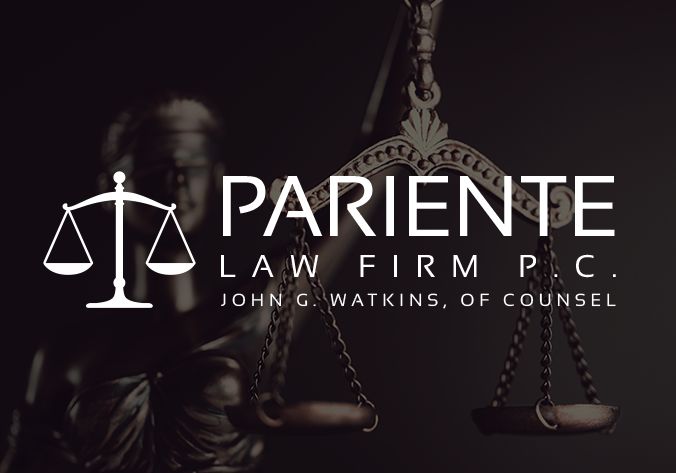What is Computer Fraud?
While there are actually a very wide variety of criminal acts that can fall under the larger term of computer fraud, it can generally be described as an act that uses a computer to obtain or alter electronic data, as well as using a computer to gain unlawful access to another computer or system. You may also hear computer fraud being referred to as “cybercrime”, “internet fraud” or “computer crime”, depending on the circumstances and details of the alleged crime in question, though these terms generally refer to the same kind of act.
Acts of computer fraud can include crimes which range from what seem like simple actions, such as sending email hoaxes with an intention to frighten the people who receive them, too much more complex acts of hacking used to alter or obtain information.
Common forms of computer or internet fraud include acts in which a person knowingly, deliberately and without proper authorization commits or attempts to commit any of the following acts to a computer, and/or to a computer program, hardware device or computer network (NRS 205.4765):
- Damaging, destroying or modifying
- Taking, copying, transferring or using
- Entering or retaining possession of
- Disclosing or concealing
What is the Computer Fraud and Abuse Act?
Federal law defines computer fraud in the Computer Fraud and Abuse Act (CFAA), which was an amendment added to already existing computer fraud law (18 U.S.C. § 1030) and enacted by Congress in 1986. This definition states that computer fraud is “the access of a protected computer without authorization or exceeding authorization”. A computer that would be considered “protected” under the CFAA is a computer “which is used in or affecting interstate or foreign commerce or communication, including a computer located outside the United States that is used in a manner that affects interstate or foreign commerce or communication of the United States”. It should be noted that this definition of a protected computer actually extends to further include any computer (or smartphone/tablet) that has internet access under the Commerce Clause, which considers the internet itself to be an “instrumentality and channel of interstate commerce”
The CFAA specifically prohibits the following acts of computer fraud:
- Distribution of malicious code
- Computer espionage
- Threats of damage to a protected computer
- Computer trespassing (in both private or public computers)
- Password trafficking
- Conspiring or attempting to commit any of the above acts, even if no attempt is made or the attempt is unsuccessful.
Penalties for Computer Fraud: State and Federal
Crimes of computer or internet fraud on a state level are typically misdemeanors. The sentence for a conviction of these crimes are usually the following:
Up to one year in county jail
Fines of up to $1,000
However, there are a few computer crimes that Nevada prosecutes as Category C level felonies. These crimes are:
- Interrupting service of a government agency or utility
- Enacting schemes to defraud either a person or institution of property through the use of a computer
- Crimes committed through use of a computer which results in costs or damages that exceed $500
The penalties for a conviction of these crimes are as follows:
- From 1 to 5 years in state prison
- Fines of up to 100,000
- Restitution paid to the victim of the crime
A conviction for a computer crime on a federal level may result in the following penalties:
- From 1 to 20 years in federal prison
- Fines and Restitution (amounts vary)
In cases that involve a defendant who either attempted or actually caused the death of another person, either knowingly or through reckless action, there is a possibility of a life sentence in federal prison.
Common Defenses for Charges of Computer Fraud
Here are a few of the common defense strategies that apply to charges of computer or internet fraud.
● Lack of Intent to Commit Computer Fraud
 Because intention is a key component in the conviction of a computer or internet crime, the most common avenue of defense is showing the court that the defendant did not have a true intention to defraud. Without proof that the accused committed their crime both intentionally and knowingly, federal charges of fraud should not be applied.
Because intention is a key component in the conviction of a computer or internet crime, the most common avenue of defense is showing the court that the defendant did not have a true intention to defraud. Without proof that the accused committed their crime both intentionally and knowingly, federal charges of fraud should not be applied.
● Reasonable Doubt
In federal cases of computer fraud, if the evidence that the government has of your crime is inadequate in proving your guilt beyond a reasonable doubt, charges should not be applied.
● Suppression of Evidence/Unlawful Investigation
If the police who investigated the crime you have been charged with did so in an unlawful manner, proving this to the judge may result in your charges being dropped. This can be achieved through a motion filed by your attorney to suppress the evidence that was unlawfully obtained during the course of the investigation. If the judge is in agreement regarding the legality of the evidence in question, the prosecution may be left with insufficient evidence to prove your guilt.
The conviction of a computer or internet fraud crime can result in consequences that may significantly alter the life of the offender. Because these types of crimes are often considered federal crimes, the penalties can be steep and difficult to overcome. If you or someone that you care about have been charged with computer fraud, it is imperative that you seek legal representation at your earliest opportunity. Cases involving computer or internet fraud can be complex and will typically require the assistance of an attorney who has experience with the state and federal laws that apply to crimes of this nature. If you would like to speak to someone about your charges, please contact our offices today. We offer free case evaluations and are ready to hear your side of the story.




